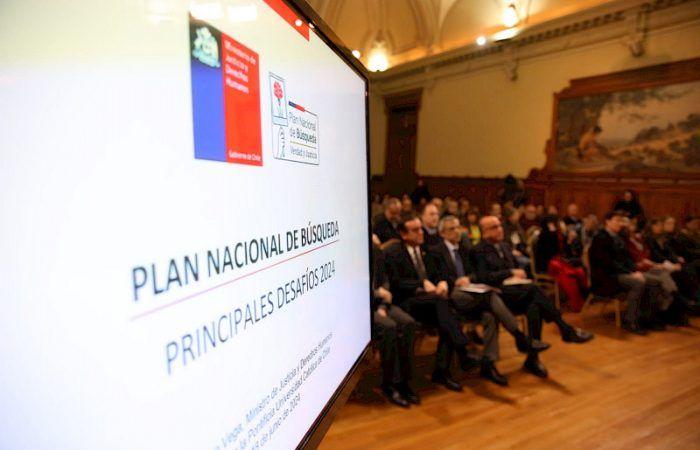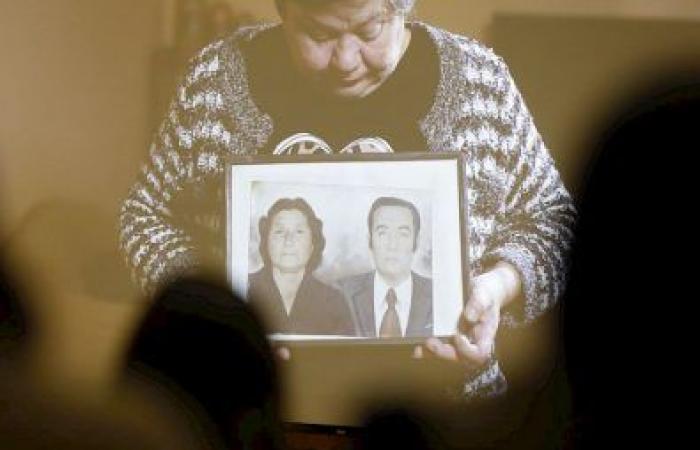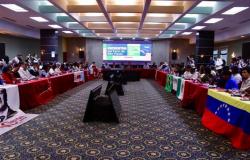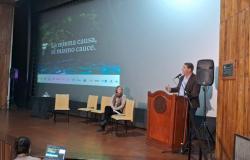On September 6, 2023, with the motto “Truth and Justice”, a new path for reconciliation and social peace began in Chile after the signing of Decree 98. This decree created a presidential commitment to sustain a permanent policy of searching for Disappeared Detainees, encouraging the State to clarify what happened in these cases. Thus, a step was taken for the country to recognize and investigate the cases of the victims of the 1973 dictatorship, establishing a work protocol focused on national reunion and state responsibility in the search for the truth.
Almost a year after this announcement, the Catholic University organized a new conversation spacewhere the UC Center for Dialogue and Peace convened victims and national, university and ecclesiastical authorities to discuss the contribution of this new National Search Plan for Missing Detainees.
The rector Ignacio Sanchez He highlighted the importance of the plan in his presentation, stating: “This plan takes care of an issue that we have pending as a country, and which is to clarify the circumstances of disappearance and/or death, in some cases, of people who were victims of forced disappearance during the dictatorship; and has taken special consideration in having the contribution of groups of victims’ families, memory sites, representatives of academia, study centers, civil society organizations and other relevant actors.”
From the Catholic University, the commitment to the search for truth and the reunion of the country has been reinforced through three aspects: History Institute has contributed to the reconstruction of the trajectories of victims of forced disappearance; the School of Psychology has offered support and courses in psychosocial trauma; and the Faculty of Engineering has explored the use of artificial intelligence to analyze historical documents related to missing detainees.
“We feel very honored to have the opportunity to contribute to the different initiatives and stages of this National Plan to Search for Disappeared Detainees (…) It is everyone’s task to contribute to an environment of dialogue that allows us to move towards a society in reconciliation, justice and peace,” said the rector of the university.
The seminar also included the presentation of the documentary “Wednesday 3:30 p.m. Memories of an Absence“, directed by Monsignor Fernando Chomali. The audiovisual piece tells the story of pain and search for justice of three women from the Group of Relatives of Disappeared Detainees of Concepción.
Monsignor Chomali commented: “This documentary arose from seeing that time was passing and we were getting old. It is the story of four women that moved me, they looked for a space to get together. It is the way to know and heal, to see reality and not what we believe we are.”
During the seminar, Erika Henningsdirector of London 38, stressed the importance of rebuilding trust and installing the plan as public policy. “The recomposition of trust is very important, and that it be established as a public policy because, although it seems like something from the past, this is a present issue. It is very important that the resources assigned to this plan are consistent with the needs that exist in the courts and the police, to advance in the expert reports and investigations of these cases.Hennings stated.
For his part, the Minister of Justice, Luis Corderocommented: “It is a plan that does not just point out numbers, but rather tries to identify who they are (…) This plan has allowed work on the ground, with protocols for reporting purposes, where it is still very relevant for people who have information to say where they are”.
The seminar concluded with a recognition of the role of different social actors in moving towards a new stage for Chile, one where the truth is the main engine for peace in the country. Sol Serranoacademic and researcher at the UC History Institute, highlighted: “I believe that this National Search Plan exalts us. One can see the rigor in its formulation, especially conceptual, legal, historical. The search plan is to meet again in a political community. Finding the missing is, above all, take charge of the violence of our own history, as our violence, in which we have to respond. And that is what we have also wanted to do as a university.”







